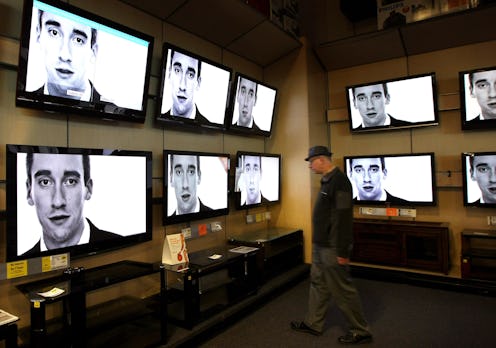News
Do You Remember Things In High-Def?
So here's how your brain is like a TV: The younger you are, the more high-definition your memories, according to a new Vanderbilt University study. It's been an interesting week of findings about memory: On Tuesday, we learned that sex is good for your memory but porn isn't, and last week we figured out how to make your face more memorable with technology. Now, it emerges that, like televisions, your memories can be visually high-definition or low-definition — and the quality of your memories can often decrease with age.
The study, published in journal Attention, Perception, & Psychophysics, used two groups of participants: One with 13 young adults aged roughly 23, and the other with 11 older people aged roughly 67.
The two groups were given a "visual change detection task" in which they were shown two, three, or four colored dots, and asked to memorize the location for a few seconds before they disappeared. Then they were shown one colored dot that was the same color as one of the previous dots or a new color. They had to answer whether the color was "same" or "different." Results showed that younger participants had a higher capacity at remembering the dots' colors, meaning their memory storage was "high-definition."
The study's findings also unfortunately mean that there's an age threshold for your memories becoming low-definition.
The study also collected electroencephalographic data, which demonstrated that, while the older group performed more poorly on the task, both groups had the same memory working capacity during the task — in other words, they remembered the same number of items. This data reinforced the conclusion that while older adults don't have a lower capacity for storing memories per se, their memories are "fuzzier," and hence low-definition.
Researchers analyzed the data and concluded that younger adults might have an implicit visual working memory that older adults didn't, which could have "boosted" their ability to remember colors.
We're a little skeptical about the findings: for example, older adults often have diminished eyesight (though again, so do some young people,) and if the way you see colors and shapes is low-definition to begin with, surely your memories would be as well?
But it'll be interesting to see whether further studies by Dr. Ko will use a larger group of participants to hold experiments, and whether he'll draw from different age groups to figure out the threshold for when our ability to store detailed visual memories plummets.
For now, just remember: your memories are HD. What are you going to do with them?
